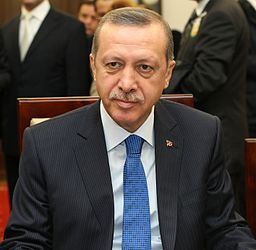Philip Baxter
October 20, 2015
The following is an excerpt of an article published in the “Duck of Minerva” blog.
A recent article in theNational Interest by Hans Rühle, former Head of the Planning Staff in the German Ministry of Defense, argues that Turkey is positioning itself similarly to Iran in its leveraging of civilian nuclear power for potential nuclear weapons breakout capability. His argument, meant largely to justify German spying on the NATO-ally, posits that since Turkey is developing nuclear power plants, potentially developing its own nuclear fuel production capacity, and does not have a provision for spent nuclear fuel to be return to suppliers (a provision not necessary if producing fuel domestically), it is obviously shadowing the Iranian proliferation formula. These arguments are significantly flawed. While the Turkish movement into the nuclear arena could be afforded more clarity, particularly on the heels of a decade of efforts to corral the Iranian program, nefarious purposes should not be assumed; nor, are they immediately apparent. […]
The type of reactor that is used is also important. The reactor models that Turkey plans to build make hiding illicit activities, such as diverting material, difficult. Reloading the fuel in the models being sought halts reactor operations and would stop operations for days or weeks at time. […]
Turkey’s external security outlook and alliance structure are also dramatically different than that of Iran’s. Scholars have examined in depth the determinants of proliferation, with security demands often found to be the primary motivating factor. However, Philipp Bleek and Eric Lorber, among others, have found that security guarantees significantly reduce the likelihood for proliferation. While Iran could be said to have sponsor states in China and Russia, these relationships are largely driven by economic interests and self-interested foreign policy. Conversely, Turkey is a long-standing member of the NATO alliance. The Article V security guarantee ensures Turkey’s existential security. Iran lacked this protection. […]
Read the full analysis at Duckofminerva.com.

